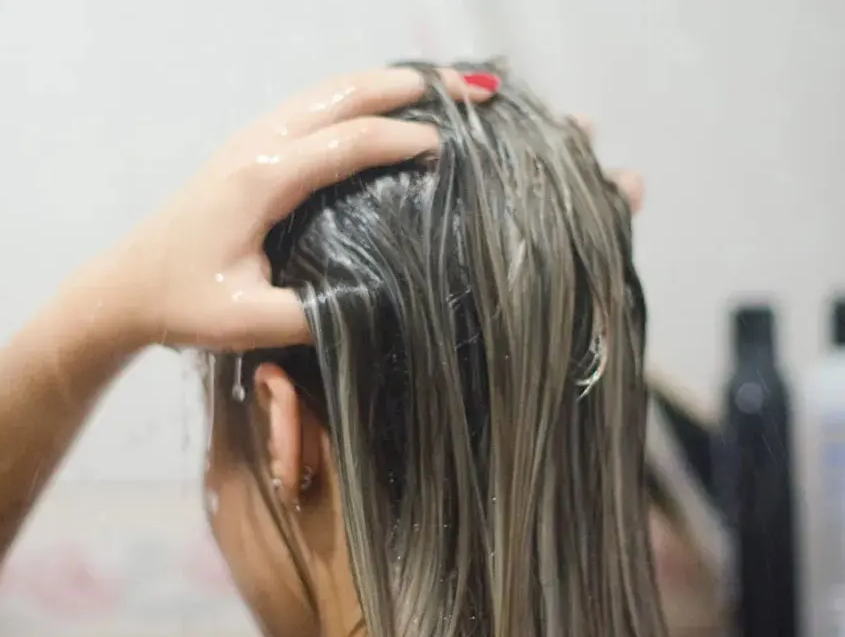
Our hair is exposed to many things daily, like dust, pollution, sun, and heat from styling tools. All these can damage hair, making it dry, frizzy, and weak. To keep hair healthy and soft, hair masks are a great solution. Hair masks help by giving deep nourishment and hydration to hair strands. People often get confused between homemade hair masks and store-bought ones. Both types have their own set of benefits and can work well depending on your needs. Homemade hair masks are made using simple ingredients from the kitchen, like oils, honey, or fruits. They are natural, chemical-free, and easy to make. On the other hand, store-bought masks are ready to use and designed to target specific hair problems like dryness, split ends, or damage. They often contain added ingredients that help give quick results. In this blog, we will explore the difference between DIY hair masks and store-bought ones, share simple recipes, and help you decide which one suits your hair better.
DIY Hair Masks Benefits
Homemade hair masks are becoming very popular. Many people like the idea of using natural ingredients that they can find easily in their kitchens. These masks are made fresh and can be customized according to hair type and needs. Many ingredients used in DIY hair masks, like honey, eggs, yoghurt, or coconut oil, are rich in nutrients that help nourish and repair hair. Using these masks regularly can help improve hair texture, add shine, and make hair feel softer. DIY masks also allow you to avoid ingredients you may be allergic to, giving you better control over what goes on your hair and scalp.
Key Benefits
- Chemical-free, so safe for sensitive scalps.
- Budget-friendly using simple household items.
- Customizable by mixing ingredients as per hair needs.
- Eco-friendly with no packaging waste.
- Freshly prepared, which means more natural nutrients are preserved.
Simple DIY Hair Mask Recipes
If you like the idea of natural hair care, here are a few simple DIY hair mask recipes you can try at home:
1. For Dry Hair
Mix two tablespoons of yoghurt with one tablespoon of honey and one tablespoon of olive oil. Apply to hair and leave for 30 minutes before rinsing.
2. For Frizzy Hair
Mash one ripe banana and mix it with two tablespoons of coconut oil. Apply this mask and leave for 20 to 30 minutes before washing off.
3. For Oily Scalp
Mix two tablespoons of aloe vera gel with one tablespoon of lemon juice. Apply on scalp and hair, leave for 20 minutes, and then rinse.
Store-Bought Hair Masks Benefits
Store-bought hair masks are designed by experts and often contain ingredients that are not easily available at home. They are made to target specific hair issues and can give faster results. Many store-bought masks also come with pleasant fragrances, making the hair care experience feel more like a spa treatment. These masks are good for busy people who want quick, no-fuss solutions.
Key Benefits
- Convenient and ready to use without preparation.
- Consistent results because of tested formulas.
- Longer shelf life compared to homemade masks.
- Focus on specific concerns like split ends or hair fall.
- Contains added ingredients like proteins, vitamins, and keratin.
When to Choose DIY Hair Masks
DIY masks are great for people who love natural solutions and have the time to prepare masks at home. If your hair is not too damaged and you want to maintain its health, DIY masks can work wonderfully. They are also best for people with sensitive scalps or those who like to avoid chemicals. DIY masks work well when you are on a tight budget or want to experiment with different ingredients at home. You can mix and match ingredients to suit your hair type.
When to Choose Store-Bought Hair Masks
If your hair is very damaged, colored, or chemically treated, store-bought masks might give you faster and more visible results. They are created with advanced formulas that can repair hair deeply. They are perfect for people who have busy schedules and want quick results without spending time making masks at home. Also, if you need a mask that targets a specific problem like dandruff, hair fall, or color protection, store-bought options can be more suitable as they have ingredients designed for those issues.
Pros and Cons of DIY Hair Masks
Pros
- DIY hair masks are made using natural ingredients and are completely free from harsh chemicals, making them a safe option for hair care.
- They are also very affordable, as they use items that are often already available at home.
- These masks are easy to make, allowing you to prepare them quickly in your own kitchen.
- Because they are gentle and free from chemicals, they are usually safe for people with sensitive skin or scalp conditions.
- Also, DIY masks are eco-friendly, as they reduce packaging waste and use ingredients directly from nature.
Cons
- One downside of DIY hair masks is that they have a short shelf life and must be used immediately after preparation.
- The results from using homemade masks may take longer to show compared to store-bought products.
- DIY masks might not be strong enough to treat severe hair problems like heavy damage or hair fall.
- They also require time and effort to prepare, which might not suit people with a busy lifestyle.
Pros and Cons of Store-Bought Hair Masks
Pros
- Store-bought hair masks offer fast and visible results, making them a popular choice for people looking for quick improvements in hair health.
- They are specially designed to target specific hair problems such as dryness, damage, or frizz.
- These masks have a long shelf life, allowing them to be stored and used over time without spoiling.
- They are also very convenient and save time, as they are ready to use without the need for preparation.
Cons
- One drawback of store-bought hair masks is that they may contain chemicals which might not be suitable for everyone.
- They can also be costly compared to homemade alternatives.
- Some store-bought masks might not suit people with sensitive scalps, as the ingredients can sometimes cause irritation.
- Also, these products are less eco-friendly because of their packaging, which contributes to more waste.
To conclude, choosing between DIY and store-bought hair masks does not have to be confusing. Both can bring good results when used the right way. DIY masks are simple, natural, and gentle on hair and scalp. They are ideal for those who prefer homemade remedies using easy kitchen ingredients. These masks are perfect for regular care, adding moisture, and keeping hair healthy naturally. On the other hand, store-bought masks are more powerful and offer faster, more focused results. They are designed to handle severe hair problems, saving time and giving instant shine and softness. They are a great choice for busy people or those who want professional-style care at home. You do not have to stick to only one option. You can enjoy the benefits of both. Use DIY masks when you have time to pamper yourself and choose store-bought masks when your hair needs extra help. This way, your hair gets the best of both worlds, keeping it happy, healthy, and beautiful.
post

Lifestyle ≠ 03 March
Fashion and Wellness: How What You Wear Can Affect Your Health

Lifestyle ≠ 03 March
Future of Fashion: Exploring the Role of AI and Virtual Reality in Style

Lifestyle ≠ 03 March
The Intersection of Fashion and Music: Style Influences from Iconic Artists

Lifestyle ≠ 03 March

Lifestyle ≠ 03 March
Previous Post
No Previous blog available.
Next Post
Lifestyle March 03
Fashion Blogging 101: How to Start Your Own Style Blog
